From the Korean drama "Crash Landing on Love" to see the differences in terms between North and South Korea
*This article involves the plot of the Korean drama "Crash Landing on Love", please watch it carefully.
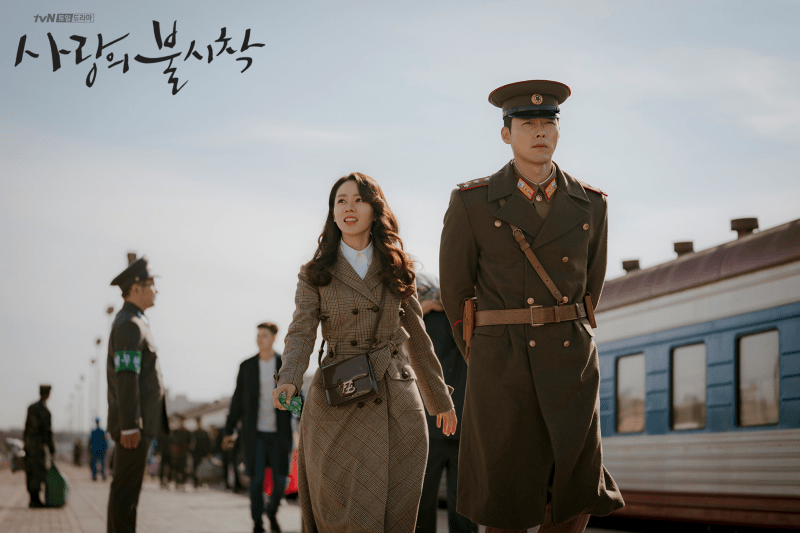
The Korean drama "Crash Landing on Love" (사랑의불시착) tells the romantic love between the chaebol II Yoon Se-ri (Son Ye-jin), who was forced to land in North Korea due to a paraglider accident caused by a tornado, and North Korean captain Ri Jung-hyuk (Hyun Bin). story.
Before the heroine "defects", the main scenes are still the North Korean outpost (the military residence village near the 38th Armistice Line) and Pyongyang.
To Taiwanese audiences, North Korea, or North Korea, whose full name is the "Democratic People's Republic of Korea," is a strange and mysterious place. Therefore, in many posts discussing this drama, in addition to being full of fans' wishes for the hero and heroine to "get married in place", the most frequently asked question is: " Is this really the case in North Korea? "
This article can't actually answer the question of "Is North Korea really like this?", but I want to talk about the portrayal of North Korea in this play from the difference in vocabulary between North and South Korea, which is useful.
Since the Second World War, the Korean Peninsula has been divided due to the relationship between the United States and the Soviet Union. The territorial scope of what we are used to calling "North and South Korea" is roughly set in 1953, after the signing of the "Korean Armistice Agreement" in Panmunjom.
Since North and South Korea has been divided for more than half a century, even if the two sides speak the same language (Korean/Korean), their cultural differences are actually reflected in the choice of words. However, it is not easy for non-Korean speakers to perceive the play, because Netflix has translated the annotations in the original screen directly into the subtitles to maintain smooth viewing.
In order to make the readers better understand the following, first briefly introduce the composition of Korean vocabulary, which are mainly divided into "intrinsic language", "Chinese word" and "foreign language". As the name implies, "Chinese characters" are words that are influenced by Chinese; words transliterated from other languages other than Chinese are included in the category of "foreign languages"; and "proper words" are words originally in Korean or created according to Korean logic .
Unlike South Korea, which uses a large number of foreign languages, North Korea basically only uses native languages and rarely uses Chinese characters. For example, in this father-son dialogue, the translation directly translates the father's words as "doughnut", the actual line is "가락지빵" (ring bread), and the annotation is "도넛" (donut transliteration) .
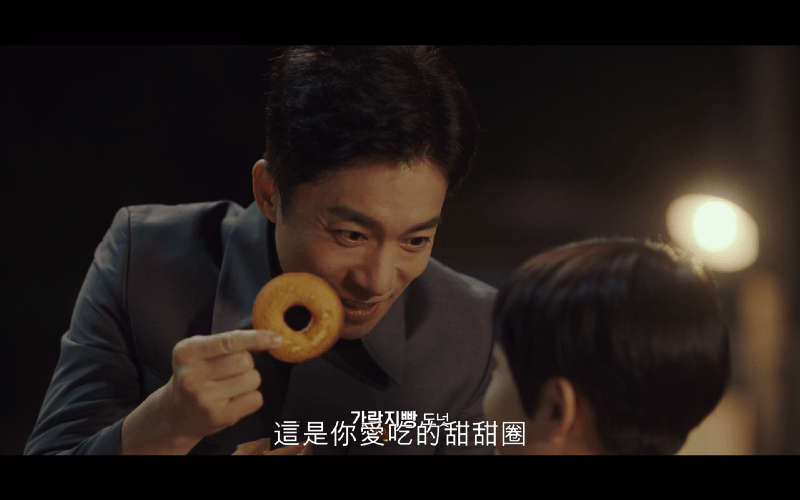
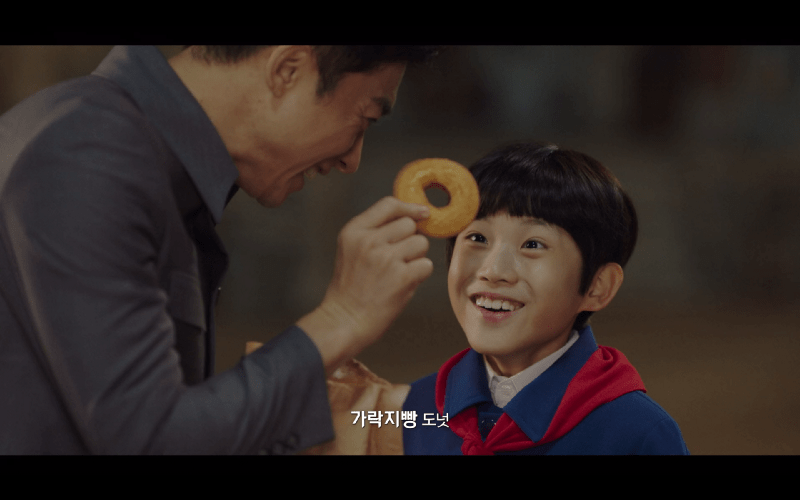
Such translation is so smooth that Taiwanese audiences may mistakenly believe that the same language is spoken between North and South Korea, enough to allow them to communicate without hindrance.
However, when the heroine Se-ri talks to the North Korean soldiers, they often talk to each other. They must use Jin Zhoumo, who likes to peek at Korean dramas, as an interpreter to maintain bilateral communication.
For example, in the scene where people gather to drink and play the game of Solitaire, Ji-soo takes "단묵" ( gummy candy ), but Se-ri asks back, "What is this?" Tong Zhoumo immediately intervened to explain, so that Shili understood that it was "젤리" (jelly, jelly transliteration). The same is true for "발바리차" (taxi) and "택시" (taxi) in the next paragraph.
Interestingly, the Chinese translation of the taxi section uses the word differences between China and Taiwan to make a distinction. (Gummy candy is an early term in Taiwan?)
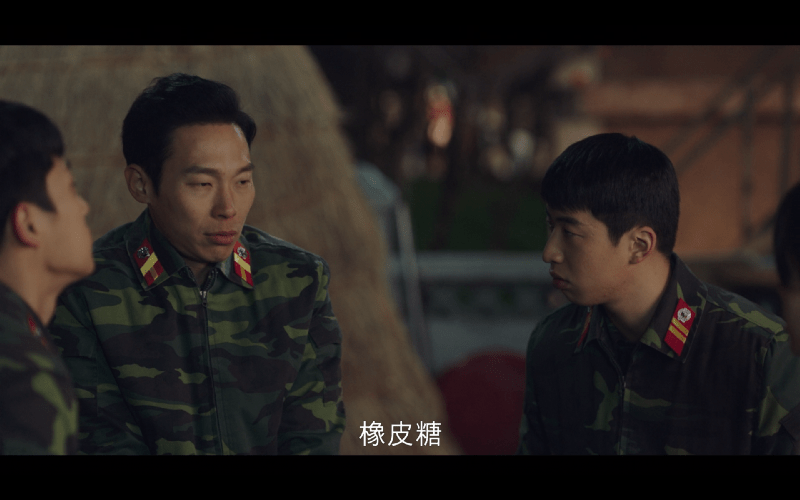
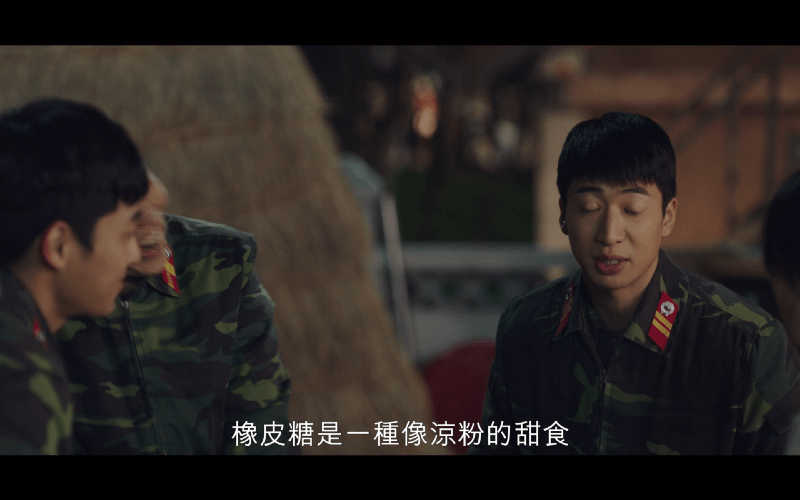

In addition, Netflix's translation also intimately translates some argotes into more explicit words for the audience to understand quickly. For example , when this officer said that "instant coffee was shipped from the south," the actual word was "아랫동네" (the village below), and the annotation was "대한민국은의미하는은어" (a lingo for "Republic of Korea").

Whether it is the difference between native language and foreign language, or some sensitive words that North Koreans must express through argot, it can be seen from the above examples that screenwriters have studied the vocabulary usage of North and South Korea. However, after the translation, in addition to maintaining the differences due to the need to advance the plot, the differences in terms used by North and South Korea have been difficult to see from the Chinese subtitles.
Like my work? Don't forget to support and clap, let me know that you are with me on the road of creation. Keep this enthusiasm together!

- Author
- More